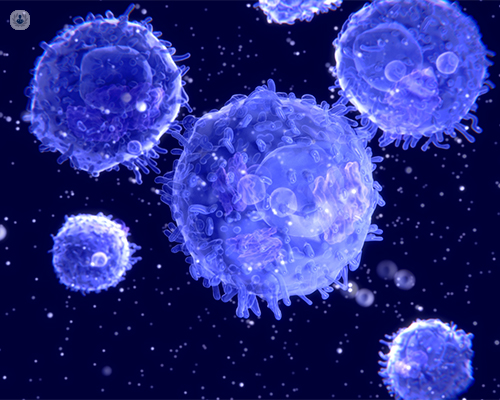Is immunotherapy a better alternative to chemotherapy?
Written in association with:In this article below, distinguished consultant medical and clinical oncologist, Professor Hany Eldeeb, tells us what immunotherapy is and outlines the different types of the cancer-treating therapy.

What is immunotherapy for cancer?
Immunotherapy is a broad category of cancer therapies that triggers the body's immune system to fight cancer cells.
What are the different types of immunotherapy?
There are many different types of immunotherapy. These include:
- Monoclonal antibodies and immune checkpoint inhibitors.
- Non-specific immunotherapies.
- Oncolytic virus therapy.
- T-cell therapy.
- Cancer vaccines.
What are the side effects of immunotherapy?
Common side effects include fatigue, fever, headaches, chills, dizziness, nausea or vomiting, muscle or joint aches, diarrhoea, and mild skin reactions. Serious side effects include colitis, hepatitis, kidney failure, pancreatitis, neuropathy, myocarditis, severe infections, skin reactions, Type 1 diabetes, and lung inflammation.
Is immunotherapy a better alternative to chemotherapy?
Immunotherapy can sometimes be given alone as an effective alternative to chemotherapy in selected cases, and given alongside chemotherapy in other circumstances.
Can immunotherapy extend life?
It is well-established scientifically now that immunotherapy extends the survival of cancer patients. The degree of prolonging life varies according to the cancer type, stage, and immune characteristics of the tumours.
To schedule in an appointment with Professor Hany Eldeeb, head on over to his Top Doctors profile today.


